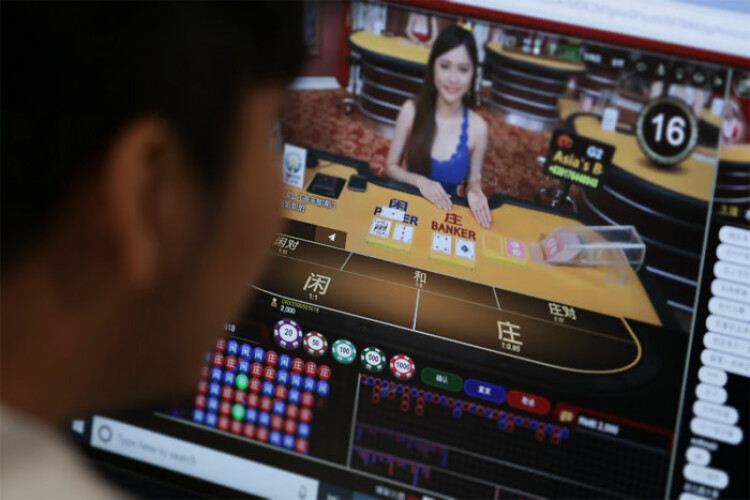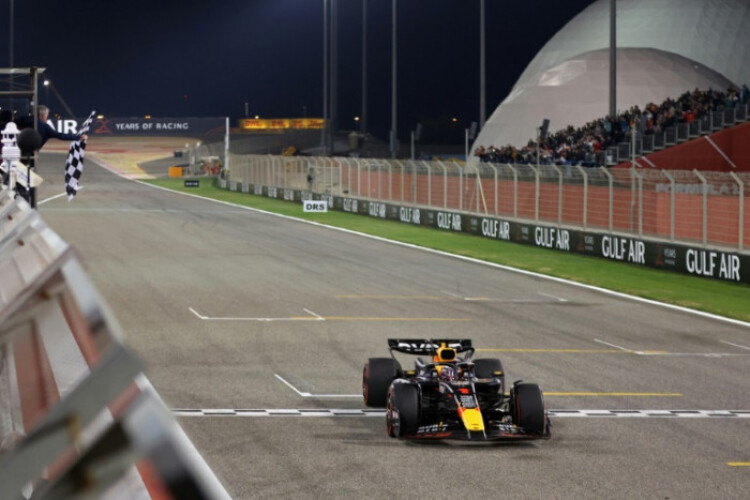
Cashless gambling will soon be permitted at Singapore's two casinos under amendments to the city state's Casino Control Act, though the use of Cashless gambling will soon be permitted at Singapore's two casinos under amendments to the city state's Casino Control Act, though the use of cryptocurrencies will remain prohibited.
The changes aim to future-proof the regulatory framework, allowing for new gaming methods, Minister of State for Home Affairs and for Social and Family Development Sun Xueling told parliament on Tuesday.
Cashless betting will include options such as placing wagers at gaming tables or machines by drawing virtual credits directly from cashless gaming accounts or e-wallets, Sun said.
But Sun emphasised that the Gambling Regulatory Authority has "no intention of allowing cryptocurrency to be used as chips for casino gambling, as this presents a money laundering risk".
The revision is the latest change to casino rules in the city state, which earlier lowered the threshold for checks on cash deposits received by casinos to prevent exploitation by terrorist and criminal organisations.
Additionally, the authority to approve the main shareholders of casino operators has been transferred from the Gambling Regulatory Authority to Minister for Home Affairs K Shanmugam, Sun said.
She said Shanmugam would "ensure continued alignment" between the integrated resorts - Marina Bay Sands and Resorts World Sentosa - and the government's "strategic objectives".
The Marina Bay Sands hotel and casino is illuminated at night in Singapore. (Photo: Bloomberg)
Sun reiterated that the government's decision to develop these integrated resorts was driven by the need to revitalise the tourism industry and generate economic benefits, including job creation, making it fitting for the minister to assume this role.
Mobile gaming
Another change is that the regulatory authority can now approve gaming software without hardware components - including software used on off-the-shelf mobile devices such as tablets - within casino premises, Sun said.
When asked how the authority would ensure that such software remains confined to the casinos, Sun explained that the games would only be available on mobile devices supplied by the operators and used within the casino premises.
"They must demonstrate how they would ensure that the gaming software cannot be used outside the casino, for instance, using geofencing technology," she said.
MP Melvin Yong noted that chance-based loot boxes are currently unregulated as a form of gambling, as long as there are no in-game monetisation features - despite the fact that loot boxes essentially represent disguised gambling.
In response, Sun said that the authorities' current approach to regulating loot boxes was "a balanced one".
"It aims to safeguard against gambling inducement rather than gaming. We will continue to monitor the landscape closely," she said.
Sun also noted that earlier this year, the Ministry of Home Affairs imposed a cap on the value of prizes for games at amusement centres and funfairs, citing a higher risk of gambling inducement when large prizes are involved.
"Similarly, if we find that loot boxes are becoming a significant driver of gambling inducement, we will review our regulations," Sun said.
Chua raised concerns about measures to combat operators offering unlicensed gambling services, regardless of their country of origin.
Sun clarified that under the Gambling Control Act, the definition of remote gambling applies to facilities located outside Singapore, whether partially or fully.
"An illegal gambling operator is thus liable for an offence and faces the same penalties even if he resides overseas, as long as the illegal gambling service is accessible by Singapore users," she said.
"But given the difficulties with enforcing this law against foreign operators, the GRA's first recourse is to block such illegal online gambling websites."
The revised law also fixes the casino entry levies for Singapore citizens and permanent residents at S$150 (US$115) per day and S$3,000 annually.
Sun noted that these levies were introduced in 2008 as a social safeguard to deter casual and impulsive gambling among residents.
Officials emphasise that Singapore authorities have “no intention” of allowing cryptocurrency to be used as chips for casino gambling. (Photo: South China Morning Post)
The levies had been increased in 2019 from S$100 daily and S$2,000 annually for a five-year period. However, the government overlooked the expiry of the 2019 order, causing the levies to automatically revert to the lower rates on April 4 this year.
On May 8, the Home Affairs Ministry restored the higher amounts, although they had still been collected during the expiry period from April 4 to May 7, resulting in about S$4.4 million (US$3.4 million) being collected above the legislated rates.
In response to a question from Chua regarding the backdating of the legislation, Sun stated that it was "always the intent to continue the higher levies until we assess the need to further adjust the rates".
"I do not think that there were expectations that the rates would revert to the earlier lower rates after the five-year period," she added, noting that maintaining the levies has helped address problem gambling.
"That said, we are not treating this incident lightly. We have been upfront to acknowledge the issue, and we have come to parliament to validate the excess collections during this period."
The changes aim to future-proof the regulatory framework, allowing for new gaming methods, Minister of State for Home Affairs and for Social and Family Development Sun Xueling told parliament on Tuesday.
Cashless betting will include options such as placing wagers at gaming tables or machines by drawing virtual credits directly from cashless gaming accounts or e-wallets, Sun said.
But Sun emphasised that the Gambling Regulatory Authority has "no intention of allowing cryptocurrency to be used as chips for casino gambling, as this presents a money laundering risk".
The revision is the latest change to casino rules in the city state, which earlier lowered the threshold for checks on cash deposits received by casinos to prevent exploitation by terrorist and criminal organisations.
Additionally, the authority to approve the main shareholders of casino operators has been transferred from the Gambling Regulatory Authority to Minister for Home Affairs K Shanmugam, Sun said.
She said Shanmugam would "ensure continued alignment" between the integrated resorts - Marina Bay Sands and Resorts World Sentosa - and the government's "strategic objectives".
The Marina Bay Sands hotel and casino is illuminated at night in Singapore. (Photo: Bloomberg)
Sun reiterated that the government's decision to develop these integrated resorts was driven by the need to revitalise the tourism industry and generate economic benefits, including job creation, making it fitting for the minister to assume this role.
Mobile gaming
Another change is that the regulatory authority can now approve gaming software without hardware components - including software used on off-the-shelf mobile devices such as tablets - within casino premises, Sun said.
When asked how the authority would ensure that such software remains confined to the casinos, Sun explained that the games would only be available on mobile devices supplied by the operators and used within the casino premises.
"They must demonstrate how they would ensure that the gaming software cannot be used outside the casino, for instance, using geofencing technology," she said.
MP Melvin Yong noted that chance-based loot boxes are currently unregulated as a form of gambling, as long as there are no in-game monetisation features - despite the fact that loot boxes essentially represent disguised gambling.
In response, Sun said that the authorities' current approach to regulating loot boxes was "a balanced one".
"It aims to safeguard against gambling inducement rather than gaming. We will continue to monitor the landscape closely," she said.
Sun also noted that earlier this year, the Ministry of Home Affairs imposed a cap on the value of prizes for games at amusement centres and funfairs, citing a higher risk of gambling inducement when large prizes are involved.
"Similarly, if we find that loot boxes are becoming a significant driver of gambling inducement, we will review our regulations," Sun said.
Chua raised concerns about measures to combat operators offering unlicensed gambling services, regardless of their country of origin.
Sun clarified that under the Gambling Control Act, the definition of remote gambling applies to facilities located outside Singapore, whether partially or fully.
"An illegal gambling operator is thus liable for an offence and faces the same penalties even if he resides overseas, as long as the illegal gambling service is accessible by Singapore users," she said.
"But given the difficulties with enforcing this law against foreign operators, the GRA's first recourse is to block such illegal online gambling websites."
The revised law also fixes the casino entry levies for Singapore citizens and permanent residents at S$150 (US$115) per day and S$3,000 annually.
Sun noted that these levies were introduced in 2008 as a social safeguard to deter casual and impulsive gambling among residents.
Officials emphasise that Singapore authorities have “no intention” of allowing cryptocurrency to be used as chips for casino gambling. (Photo: South China Morning Post)
The levies had been increased in 2019 from S$100 daily and S$2,000 annually for a five-year period. However, the government overlooked the expiry of the 2019 order, causing the levies to automatically revert to the lower rates on April 4 this year.
On May 8, the Home Affairs Ministry restored the higher amounts, although they had still been collected during the expiry period from April 4 to May 7, resulting in about S$4.4 million (US$3.4 million) being collected above the legislated rates.
In response to a question from Chua regarding the backdating of the legislation, Sun stated that it was "always the intent to continue the higher levies until we assess the need to further adjust the rates".
"I do not think that there were expectations that the rates would revert to the earlier lower rates after the five-year period," she added, noting that maintaining the levies has helped address problem gambling.
"That said, we are not treating this incident lightly. We have been upfront to acknowledge the issue, and we have come to parliament to validate the excess collections during this period."










